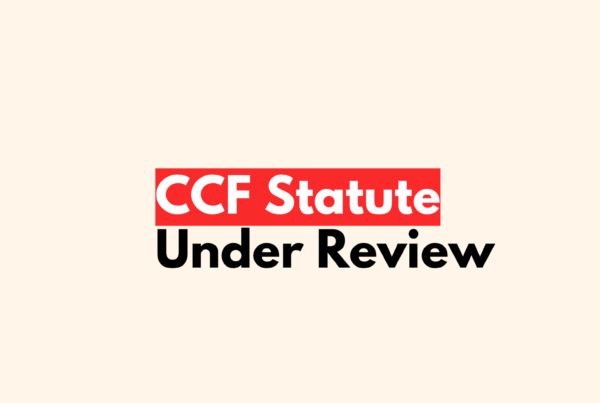The Commission for the Control of INTERPOL’s Files (CCF) ensures that the processing of personal data by INTERPOL complies with applicable INTERPOL rules. It handles requests for access, correction, or deletion of data processed in the INTERPOL Information System from individuals. Ensuring the independence and impartiality of its members is essential to maintaining the integrity and fairness of this oversight body. This article examines the mechanisms in place to safeguard the independence of the CCF, as detailed in its Statute and Operating Rules, and highlights the importance and challenges of maintaining this independence.
1. Statute and Operating Rules of the CCF
Statute of the Commission
The Statute of the Commission reaffirms the principles of independence and impartiality. Articles 4, 11, and 12 of the Statute emphasize that the CCF must operate independently and that its members must serve in their personal capacity, free from any external influence. INTERPOL and its member countries must respect this independence, ensuring that decisions are based solely on legal criteria.
Operating Rules
When the CCF’s Statute entered into force in March 2017, the Commission adopted new Operating Rules to reinforce these principles. These rules provide detailed guidelines on incompatible activities and the necessary withdrawal of members to avoid real or perceived conflicts of interest. To further strengthen these measures, the Commission amended its Operating Rules on 1 February 2019. These amendments introduced additional guarantees of independence and impartiality, ensuring that members take all necessary measures to avoid conflicts of interest and refrain from participating in INTERPOL’s official meetings and conferences as national delegates.
2. Mechanisms ensuring independence and impartiality
Personal capacity and status of CCF Members
In accordance with Articles 8(1), 8(2), and 9(1) of the Statute, the members of the Commission are elected by the General Assembly from among qualified nationals of member countries of the Organization. They serve in their personal capacity, not representing their country, administration, or any entity, ensuring they remain impartial. Unlike members of INTERPOL’s Executive Committee, who represent their respective countries, CCF members act independently to prevent any national bias. Consequently, they do not have the status of officials of the Organization, and the term “remuneration”, as used in Article 13 of the Statute, is defined as a lump-sum payment which does not qualify as a salary.
Incompatible activities
In accordance with Article 11(1) and (2) of the Statute, CCF members must not engage in any activity that may appear to be incompatible with their independence or impartiality during their term of office. They must take all appropriate measures to ensure respect for the independence and impartiality of their function and the Commission. In particular, they must avoid any actions that could create a real or perceived conflict of interest. Rule 1 of the Operating Rules further details these incompatible activities, emphasizing that members should not participate in any political, administrative, or professional activities that could compromise their impartiality.
Recusal and non-participation
Rule 2 of the Operating Rules specifies that a CCF member must withdraw from any case where there is a real or perceived conflict of interest. This includes personal or professional relationships, prior involvement in the case, or nationality of the country source of the data challenged. For instance, a French member must recuse themselves from cases involving data provided by France. When a member withdraws, they must notify the Chairperson, who will exempt them from participation in the case. They will not be present during discussions or have access to case documents. If there is any doubt or disagreement about a member’s conflict of interest, the issue will be decided by all members of the Commission, excluding the member concerned.
Avoidance of conflicts of interest
Rule 1.2 of the Operating Rules requires members to avoid any activities that could lead to real or perceived conflicts of interest. This includes avoiding professional engagements that might compromise their impartiality. For example, a member cannot serve as a legal advisor to a government that has data under review by the CCF. The rules are comprehensive and have been clarified through amendments to ensure all potential conflicts are covered. Members are also required to communicate any concerns about their independence or impartiality to the Chairperson, who will address the issue with the Commission if necessary.
Restrictions on official meeting participation
Rule 1.3 of the Operating Rules prohibits CCF members from participating in INTERPOL’s official meetings or conferences as delegates appointed by their countries. This ensures that their decisions and actions remain unbiased and independent. However, subject to the prior approval of the Chairperson or a decision by a majority of the Commission, they may participate in such meetings as representatives of the Commission. This measure helps to further insulate members from potential national biases and influences.
Formal commitments
Before taking office, all CCF members must sign a solemn declaration stating that they will exercise their functions honorably, independently, and impartially (Rule 3.1 of the Operating Rules). This declaration is a formal acknowledgment of their obligation to maintain the highest ethical standards. It serves as a constant reminder of their duty to act without bias, reinforcing their commitment to impartiality and ethical conduct. The declaration is signed by the member and kept in the records of the Commission.
3. Importance of preserving independence
Independence ensures that decisions are based solely on legal criteria, free from external pressures. This is critical for maintaining fairness in handling requests and complaints. Impartial decision-making upholds the integrity of the CCF’s oversight function. For instance, in cases where data from politically sensitive contexts is challenged, the independence of the CCF ensures decisions are based on legal merits rather than political considerations.
4. Challenges to independence
Member countries may exert political pressure on the CCF to influence decisions in their favor, especially in high-profile cases. The CCF often faces such pressures from the National Central Bureau (NCB) that provided the data. Maintaining the CCF’s resistance to these pressures is crucial to preserving the integrity of its decisions. This is particularly challenging when the CCF concludes that certain data are not compliant with INTERPOL’s rules, as it may face intense pressure from the originating NCB. Ensuring that the CCF remains resistant to such pressures is vital for maintaining its role as an impartial oversight body.
The CCF’s standards and rules are designed to ensure the independence and impartiality of its members. Despite challenges, these mechanisms help maintain the integrity and trust necessary for its operations. By upholding these principles, the CCF reinforces its crucial role ensuring that decisions are made fairly and without bias. Continuous efforts to reinforce these mechanisms and adapt to new challenges are essential for maintaining the effectiveness and credibility of the CCF.





